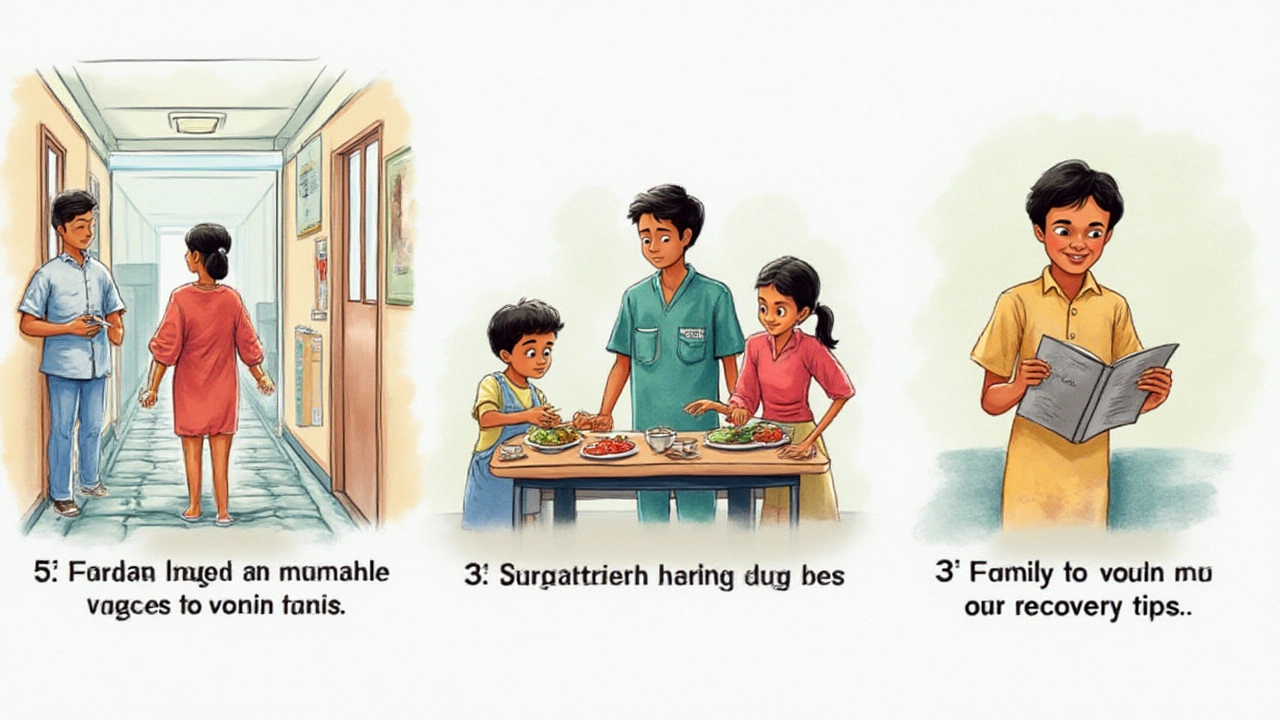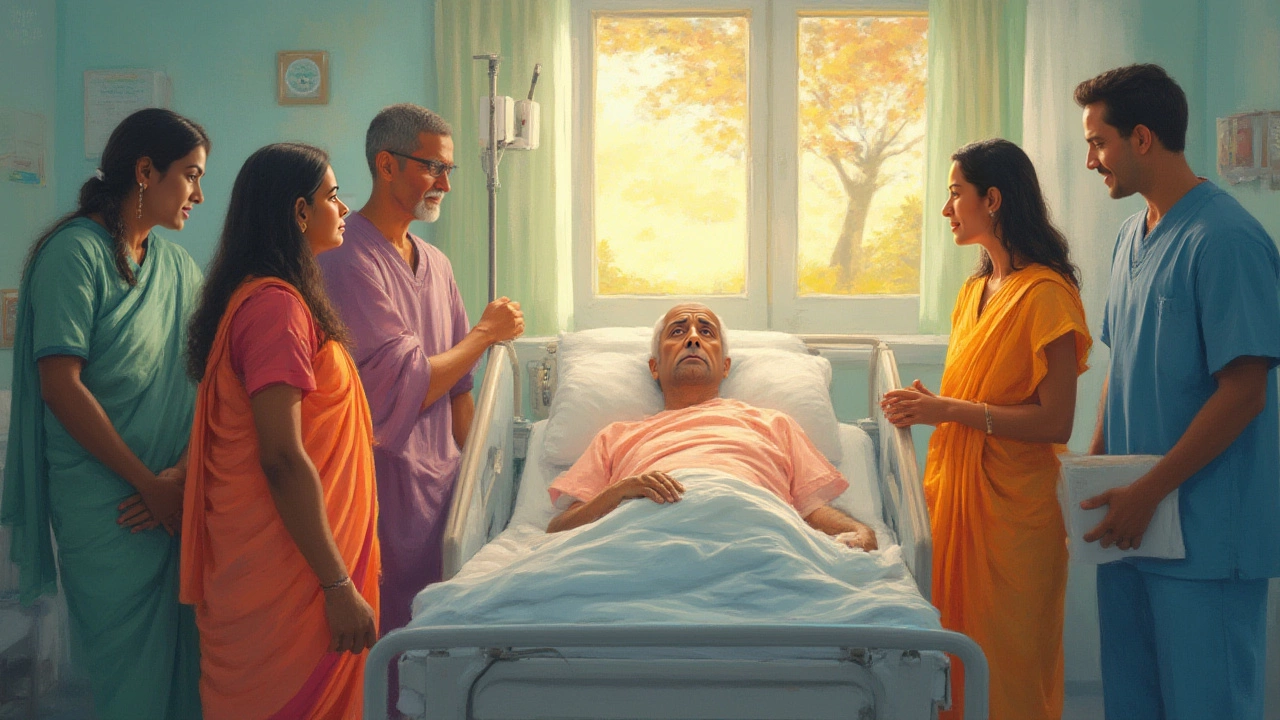If you think modern medicine has recovery all figured out, think again—especially when it comes to open-heart surgery. Walk into any cardiac unit and you’ll hear someone hoping for a short hospital stay, while their neighbor faces a longer stay because of one small hiccup. The question is everywhere: how many nights will you actually spend in a hospital bed after open-heart surgery?
What Really Happens Immediately After Open-Heart Surgery?
Step into the shoes of someone fresh out of open-heart surgery: tubes, beeping monitors, and that first deep breath—harder than it looks. Right after the surgeon stitches up your chest, you’re wheeled into the ICU. This isn’t just routine observation—ICU teams work round the clock to watch for problems like irregular heart rhythms, infection, bleeding, or fluid buildup around the heart. Doctors and nurses don’t just peek in. For the first 24–48 hours, almost every vital sign matters. Families often think patients will sleep through it, but actually, nurses are in and out, adjusting medicine, checking drains, running blood tests, keeping everyone alert.
How long will you stay here? Most people—assuming everything goes as planned—leave the ICU within 48–72 hours. But that first stretch can flip quickly. Around 15% of patients might need extra ICU hours because their hearts need more support, or breathing takes longer to stabilize. Breathing tubes usually come out within hours, but for some, an infection or complications mean breathing support sticks around longer. Age, weaker heart before surgery, or surprise bleeding can make recovery bumpy. No one wants to hear it, but a handful may stay more than five days in ICU.
Right after surgery, some patients will feel foggy—thanks to general anesthesia and painkillers. Confusion isn’t rare. In fact, hospitals know that up to 30% of open-heart surgery patients experience a little delirium in the ICU, especially those who are older. Hospital teams work hard to reorient and help patients know where they are. This gets better with each day out of surgery. And if you think heart surgery is all about the scar—think again. Monitoring kidney function, lung power, and the risk of clots or stroke takes equal importance those first two days.

The Typical Hospital Stay: Numbers, Realities, and What Changes the Timeline
Alright, let’s get down to brass tacks: most people stay in the hospital for 5 to 7 days after open-heart surgery. That’s the average. The number isn’t plucked from thin air—it’s based on decades of records, and it holds true in places like the US, UK, India, and Australia. Some leave earlier, while others need more time thanks to a potluck of factors.
What’s a "normal" stay? According to America’s Cleveland Clinic and NHS England, here’s what you’ll see for uncomplicated surgery:
| Phase | Typical Time Spent |
|---|---|
| ICU Recovery | 24–72 hours |
| Step-down Unit | 1–3 days |
| General Hospital Ward | 1–2 more days |
| Total Average Stay | 5–7 days |
The first couple of days are always in the intensive care unit, closely watched. Once a patient is stable—off the ventilator, with steady blood pressure—they move to a "step-down" unit. Here, the environment is a little less high-stress, but nurses keep a sharp eye out. Patients are encouraged to get up (yes, you’ll probably sit in a chair the day after your surgery), start breathing exercises, and eat soft foods. Physical therapy might start on day two or three, with gentle walking and guided movement. Come day four or five, folks spend more time in a standard room, building up their strength so that going home won’t be such a shock.
So what can stretch out your stay past the magic number of 7? Let’s break it down:
- Age and overall health: Someone over 75 or already dealing with diabetes, COPD, or kidney disease may take longer to bounce back.
- Type of heart surgery: A single valve repair usually means fewer days than triple bypass and valve replacement together.
- Complications: Internal bleeding, infections, heart rhythm glitches, or pneumonia keep patients longer.
- Post-surgical confusion or weakness: Recovery depends on how quickly someone’s mind and body perk back up.
- Wound healing: Infection along the chest incision, which hits about 2–4% of people, slows down everything.
Hospitals know nobody wants to stay longer than needed. Insurance sometimes pushes for earlier discharge, but nobody’s sent home if they aren’t safe. Teams check for steady blood pressure, the ability to walk a short way (with help if needed), reasonable pain control with pills, and signs the heart and lungs are working well. If you’re still short of breath at rest or too dizzy to stand, that hospital bed isn’t letting you go yet.
It’s not all about age or bad luck either. Folks who stayed active or did "prehab" (gentle exercise and nutrition before surgery) often recover faster. A few hospitals run pre-surgery fitness programs just to shave a day or two off recovery. Recovery coaches swear by even a few weeks of daily walks or resistance bands. It changes outcomes.

Getting Home Sooner and Healing Faster: What Helps and What Happens Next?
If you’re anxious about getting home fast, there’s good news: a ton of research now backs "fast-track" recovery programs. Hospitals now use techniques like less-invasive anesthesia, early extubation (removing the breathing tube ASAP), and encouraging movement sooner. Simple things make a real difference. Patients who sit up and take a small walk by day one often go home a whole day earlier than those who stay put. Some programs reduce the average hospital stay for open-heart surgery to 4 or even 3 days—though these are mostly for younger, otherwise healthy folks.
Curious about what actually clinches an earlier discharge? Here are habits and steps that stack the odds in your favor:
- Get moving—as soon as doctors say it’s safe, even a gentle walk (with help) helps lungs and blood flow, and keeps clots away.
- Do breathing exercises. Hospitals hand out little "incentive spirometers" for a reason. Patients who use them avoid pneumonia better.
- Eat and drink—slowly at first, but those who eat a little protein and drink fluid (as allowed) tend to heal faster.
- Follow wound care instructions to the letter. Never pick at bandages or skip cleaning routines.
- Tell your team about any new symptoms: fever, chills, severe pain, dizziness, or trouble breathing mean you need attention fast.
Don't ignore the brain. Mental recovery matters just as much. Some get "ICU blues" or even mild depression after heart surgery. Up to 20% feel a crash in mood on returning home. Have someone on standby to talk to, whether a friend, family, or nurse—they help spot warning signs. If you’re sleeping poorly or feel off for weeks, bring it up at your checkup. It’s never "just in your head" after heart surgery—hormones and the stress of surgery can take time to reset.
Once home, most people still need around 4–8 weeks to feel "normal." Work, driving, and heavier chores are off the table for a while. Cardiac rehab programs—offered at most major hospitals—can help you regain strength, confidence, and even mobility faster. If you want to get back to work, friends, and your old exercise routine sooner, this rehab is no small thing. Some research links rehab with a 25% lower risk of complications in the first year. Plus, you learn how to spot warning signs that bring you back to the ER if needed.
If you want a pro tip, plan for help at home for at least the first two weeks. Cooking, cleaning, even just company—these make all the difference once you’re out of the hospital safety net. And set up your home: clear clutter, install grab bars, and keep essentials within arm’s reach. Tiny tweaks mean fewer accidents and less stress.
So if you’re counting down days on the hospital calendar after open-heart surgery, you’re not alone. The average is 5–7 days, with some finishing sooner and others sticking around for double that. What matters most is getting stable enough to safely heal at home—and not rushing just to beat the "average." Recovery’s a journey, not a race, and a few well-placed steps before and after surgery can cut your time stuck in hospital pajamas.
